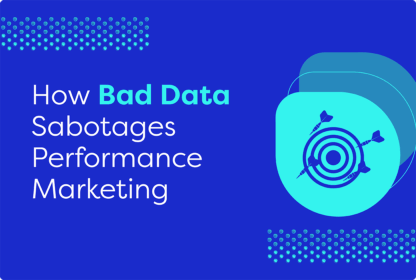In a recent report on predictions for 2024, Forrester declared: “Marketers Will Become Privacy Champions.”
It’s inevitable. But fear not–we’re here to guide you. In fact, Lori Mason, Chief Privacy Officer and General Counsel at PebblePost, has a mantra for marketers navigating the ever-changing privacy landscape: “Lean in and get involved early.”
She continues, “Much of the work that you are going to do will involve data. And when you’re involving data, you’re involving privacy and regulation. So my mantra is really for marketers to get aligned with their privacy counsel or their lawyers very early on in the process.”
Mason recently sat down with Allison Borrow, Director of Revenue Marketing at PebblePost, for a webinar on navigating the data and privacy landscape. Here are four takeaways from their conversation to help marketers effectively plan for changes to come in 2024:
1. Educated marketers hold the key
Marketers have previously sat siloed from their privacy and legal teams. But today’s environment demands that marketers are more knowledgeable about data privacy topics and more aligned with these other departments.
However, this doesn’t mean marketers need to become lawyers or privacy experts. It means the sooner they bring these teams in on a given marketing campaign, the likelier they can launch on time and push to comfortable limits of where they can use data.
“Marketers are the internal advocates for whatever campaign they are doing,” Mason said. “It’s the internal team that really needs to be able to educate the legal team and the privacy team on the data that they want to use…it’s up to the marketers to really articulate the business case and the significance.”
2. An acronym to center what’s at the heart of sound privacy practices
Marketers exist in a sea of acronyms. But Mason has developed a simple one to help them remember what good data privacy is for consumers: PETS Choice. It refers to the communication between brands and consumers.
“Consumers want honesty, transparency, and they want control over how their data is used,” Mason said. “So as a marketer and a brand, you just really need to have clear communication with your consumer through your website.”
That means marketers must ensure their privacy policies are:
- Prominent in their display on brand websites
- Explicit in their details
- Transparent in terms of how consumer data is used
- Specific about these use cases
- Give consumers the choice to opt out of the use, sharing, and sale of their data
“That’s kind of our motto at PebblePost,” Mason said. “We want to send respectful marketing that’s relevant. So we want to send it to the consumers who want to receive it. You can still love a brand, but you don’t want to have marketing or advertisements from them. And I think that’s great knowledge to have as a marketer.”
Mason said that Google’s deprecation of third-party cookies in Chrome is coming in 2024, but she doesn’t think it will be as drastic as some marketers fear.
“I don’t think it’s going to be a cliff where Google just shuts off third-party cookies like a faucet, and therefore it dramatically impacts marketers,” she said.
Instead of fretting, marketers should continue doing what they hopefully have already been: reviewing their internal data privacy policies and ensuring their marketing partners are prepared. For instance, marketers will require more first-party data from their brands. Marketers need to know their trouble spots with sharing that data, understanding their policies, and offering consumers the right to opt out of these practices.
Then, marketers should ask some of the following questions of their partners:
- What other identifiers do you use?
- Do you comply with all state laws?
- How will you allow us to continue passing on consumer preferences and choices?
- Do you have expanded services and use the data for a graph or selling or onboard selling?
- What type of data privacy documentation do you have?
Mason recommends working with marketing partners with access to first- and second-party data that do not use cookies as the identifier to match anonymous visitors to brand websites. For example, PebblePost has a robust household address graph of 500 top-tier brands and a lot of first- and second-party data, so we’re less dependent on identifying anonymous visitors to brands’ websites. There is also IP matching and other types of identifiers that many companies like ours are quickly exploring ahead of third-party cookie deprecation.
4. Buckle up for more state—and eventual federal—privacy legislation
The deprecation of third-party cookies isn’t the only thing coming in 2024.
After the California Consumer Privacy Act (CCPA) was enacted in 2020, other states pursued similar laws. Colorado, Connecticut, and Virginia have followed suit in the last almost four years. By the end of 2024, Utah, Oregon, Texas, and Montana will also have enacted their privacy laws, with Delaware, Iowa, Indiana, and Tennessee to come in 2025 and 2026.
With a quarter of states enacting new privacy laws within the next two years, it will complicate efforts to enact federal legislation. One bill is currently pending, but Mason thinks it will still be some time before it goes through.
“Some of the challenges are really how they would interact with state legislation like the CCPA,” Mason said. “California has a very strong legislative body that is really keen on keeping CCPA and CPRA and wouldn’t want to have legislation diluted by federal legislation that would supersede it.”
Ready or not, there are more data and privacy changes coming! Listen to the entire webinar to turn 2024 into an opportunity to create stronger relationships with your consumers through more relevant, respectful marketing.



